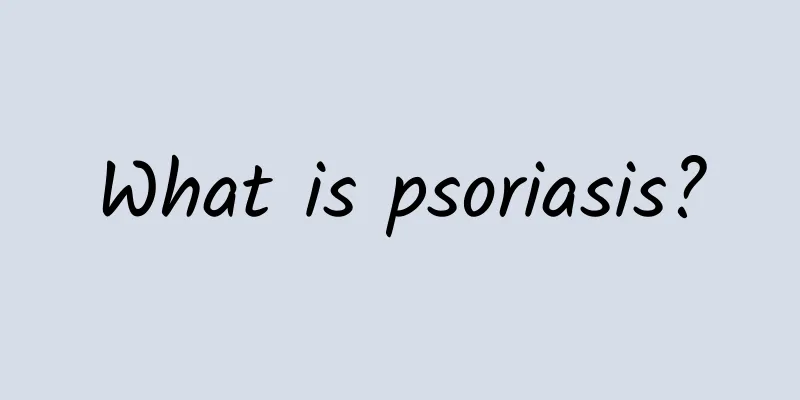"Mycoplasma pneumonia" is on the hot search, taking cephalosporin is ineffective! 4 pitfalls of using antibiotics, don't step on any of them

|
Recently, peaks of Mycoplasma pneumoniae infection have occurred in many parts of the country. Pediatric clinics in many areas are already overcrowded, and disease control departments in many places have also issued warnings, urging people to be vigilant about the risk of Mycoplasma pneumoniae transmission. Regarding the peak of Mycoplasma pneumoniae, the Beijing Center for Disease Control and Prevention also issued a reminder: the city is in the peak period of Mycoplasma pneumoniae infection. At the same time, it also reminded citizens that penicillin and cephalosporin are completely ineffective in treating Mycoplasma pneumoniae infection, and they should not blindly take medicine on their own. Why are these drugs ineffective against mycoplasma? Many friends may wonder why penicillins and cephalosporins, the most commonly used drugs to fight bacterial infections in daily life, cannot deal with a small mycoplasma? The reason is actually not complicated. From the perspective of microbiological classification, mycoplasma is neither a bacterium nor a virus. It is a special microorganism with the internal structure of bacteria but without a cell wall. To describe it in a more vivid way, mycoplasma is like a "bacteria" without clothes. Penicillin, cephalosporin and other antibiotics have antibacterial effects by destroying the cell wall of bacteria, causing bacterial apoptosis. Mycoplasma does not have a cell wall structure at all, so penicillin, cephalosporin and other drugs cannot play their role, and of course they are completely ineffective. Photo/Meng Jian So what medicine can be used to fight Mycoplasma pneumoniae infection more effectively? At this time, another type of antibiotic plays a good role, which is macrolide antibiotics. This type of antibiotics includes the familiar roxithromycin, azithromycin, etc. The antibacterial mechanism of this type of antibiotic is to inhibit the synthesis of bacterial proteins by blocking the activity of peptidyl transferase. Therefore, it can also effectively inhibit mycoplasmas without cell walls. Therefore, if a patient is clearly infected with Mycoplasma pneumoniae, macrolide antibiotics can be used as the first choice for treatment in terms of antibiotic application. In addition to macrolide antibiotics, tetracycline antibiotics and fluoroquinolone antibiotics can also effectively fight mycoplasma infection. Tetracycline antibiotics include tetracycline, doxycycline, minocycline, etc., and fluoroquinolone drugs include ofloxacin, levofloxacin, moxifloxacin, etc. However, it should be noted that, in general, children and adolescents aged 5 to 15 are more susceptible to Mycoplasma pneumoniae infection. For children and adolescents, tetracyclines may bring a safety risk of yellowing teeth, while fluoroquinolones may affect cartilage development in people under 18 years old. Therefore, for children or adolescents infected with Mycoplasma pneumonia, tetracyclines or quinolones should only be considered when macrolide antibiotics are ineffective (resistant mycoplasma infection) and drug treatment is indeed necessary. The benefits and potential risks of the medication should be fully evaluated, and drugs that may have less impact on the body should be selected for anti-mycoplasma treatment. This all needs to be judged by the doctor. Here I would like to remind everyone that the above content is just to explain to you the principles of drug resistance to mycoplasma and the potential risks. If you have suspected symptoms, please do not act on your own. You should seek medical attention in time, get prescriptions from the doctor, and take the medicine as prescribed to avoid accidents. Through the above introduction, many friends should be able to understand why our disease control department reminds everyone not to take medicine blindly. In fact, there are still many misunderstandings about antibiotics in our daily life. Following the issue of Mycoplasma pneumoniae, I will continue to introduce to you the "pitfalls" that should be avoided in the use of antibiotics. Taking antibiotics regularly can prevent disease The most outrageous example I have ever seen was an elderly friend who had relatives working in a pharmaceutical factory and could get free antibiotic capsules. The old man insisted on taking them, thinking that it could prevent diseases and colds. This practice is very bad. Antibiotics are prescription drugs that have a clear effect against infections by various pathogens. Their scope of application also has clear definitions and indications. However, long-term use of antibiotics to prevent disease will not only fail to prevent disease, but may turn the body into a "breeding base" for drug-resistant bacteria. Once an infection with multidrug-resistant bacteria occurs, you may face a situation where there is no cure, which is very risky! Antibiotics are used to treat all diseases There are also some friends who take antibiotics for colds, sore throats, COVID-19 infections, and flu... They think that no matter what kind of physical discomfort they have, as long as they take antibiotics they can "reduce inflammation" and cure the disease. This practice is of course the same as the previous example and is also not advisable. There are many types of antibiotics, and the antibacterial spectrum of each antibiotic is different. In the fight against bacterial infections or infections with other bacterial pathogens (such as mycoplasma), the rational use of antibiotics can indeed play a good therapeutic and improving role. However, some diseases are viral infections, or are not infectious diseases at all. In this case, taking antibiotics to reduce inflammation is a completely ineffective method of medication. Instead, it may affect the health of our intestinal flora and the normal functioning of immune cells, and bring more adverse effects to physical health. Antibiotic injections 'get better quickly' There is a common misconception about medication use, which is that injections work faster than oral administration. Direct injection reduces the absorption, metabolism and first-pass effect of oral medications, and its onset is indeed faster and more direct, but for many infectious problems, injection does not shorten the course of disease more than oral administration. Only in some more urgent situations or when the patient cannot take the medication orally should injection be considered for antibacterial treatment. Photo/Meng Jian Whether to choose injection or oral medication should not be based on the principle that the patient or his family feels that "getting better quickly", but should be determined based on the severity of the disease and the feasibility of oral medication. Intravenous infusion is an invasive way of administering drugs, and its medication risks are much higher than oral medication. Therefore, for the use of antibiotics, we should still adhere to the basic principle of oral administration instead of injection. Antibiotics are too strong Eat and stop Some friends go to the other extreme, thinking that antibiotics have too many side effects and that they cannot be taken too much. However, when they need to take the medicine, they are afraid to take it. They take it on and off during the process. When it works, they stop taking it immediately. When the disease recurs, they continue taking it again. Such wrong practices must also be corrected in time. When the condition is clear and antibiotics are needed for anti-infection treatment, the basic principle of adequate dosage and adequate course of treatment should be followed, that is, the dosage of the medicine should be selected according to the actual situation. For example, children should choose a reasonable dosage based on their weight, and adults should choose a reasonable dosage based on the severity of the infection. In addition to using a sufficient dose, the course of medication should also be combined with the medication, and the number of days should be sufficient. If a course of medication is 7 days, and you stop taking it after 3 days because you feel "better", it may lead to recurrence of the disease and aggravate the progression of the disease. At the same time, this incorrect way of using medicines will also bring the risk of the infectious bacteria gradually becoming resistant to drugs. If the bacteria become resistant and the original antibiotics become ineffective, new drugs will be needed to inhibit the resistant bacteria, which will greatly extend the difficulty and cycle of treatment. In short, the use of antibiotics is a double-edged sword. The advent and rational use of antibiotics have greatly increased the average life expectancy of the population worldwide and reduced the mortality rate of infectious diseases. The rational use of antibiotics is still an important means to combat various infectious diseases. However, due to the abuse and irrational use of antibiotics, many multi-drug resistant bacteria have emerged, which has brought new challenges to some cases of infection with drug-resistant bacteria. I hope everyone can use antibiotics rationally and make antibiotics a guardian of health care, rather than a booster that turns health over. Author: Li Jin, deputy director and pharmacist, deputy leader of the Youth Studies Group of the Medical Committee of the China Science Writers Association Review丨Liu Guiyang, Chief Pharmacist, Fourth Medical Center, PLA General Hospital |
<<: Will your hair become thicker if you shave your head frequently?
>>: Night Listening | Should I go for massage and bone adjustment if I have cervical spondylosis?
Recommend
How to treat vaginal itching?
If women usually wear clothes that are too tight,...
Blood test for endocrine
Routine blood test is also an indispensable basic...
What should I do if I have acne on my face recently?
With the development of society, people are under...
What should I do if I have sex during my period?
The menstrual period is the most critical period ...
End the COVID-19, or coexist with it? Five reasons may lead to the failure of herd immunity
In the long run, COVID-19 may become a local epid...
When to drink black soybean milk when preparing for pregnancy
In order to give birth to a good-looking and cute...
Can I wait at a traffic light without pulling the handbrake? Why is the handbrake frozen in winter?
The handbrake is the parking brake, which is usua...
How long does it take to get an IUD after giving birth?
I believe everyone is familiar with Caesarean sec...
Is it better for women to have a medical abortion or a surgical abortion for their first pregnancy?
Many people are now familiar with the term "...
Are Sartan antihypertensive drugs carcinogenic? Pharmacists tell you the truth
Several friends asked Huazi if they could still t...
What's wrong with my menstrual period not coming?
Some women have abnormal menstruation and have be...
Playing with your phone before going to bed has many disadvantages!
If we were to ask what is the most troubling thin...
Do menopausal women have sexual demands?
As we age, we will gradually enter menopause. Onc...
Clinical symptoms of mammary gland hyperplasia
Breast disease is a problem that many women in mo...









